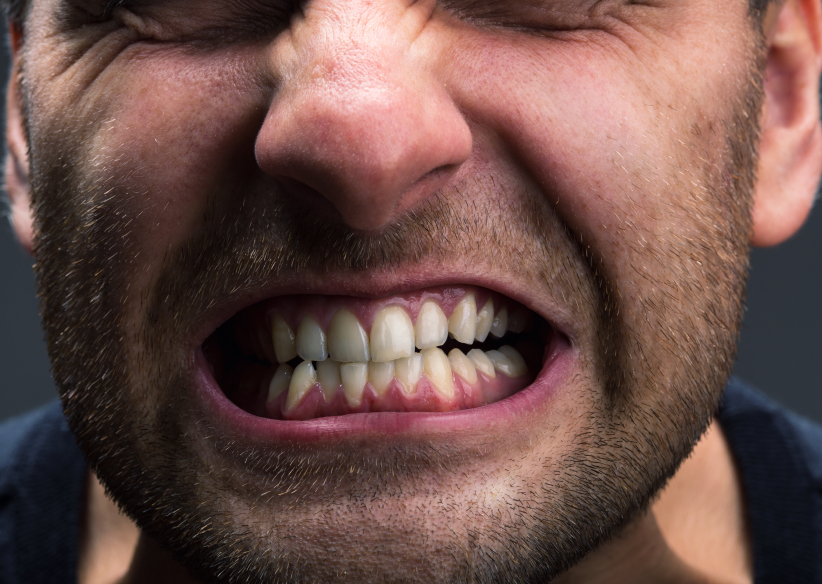Many people suffer form bruxism, which means that they grind their teeth. However, how do you know if you’re grinding your teeth? It is extremely common to begin grinding your teeth during the night, when you have no awareness of the fact, but if you look out for the telltale signs and report them to your dentist then you will stand a good chance of being able to treat the major symptoms caused by grinding your teeth.
1) You have noticed damage to your teeth
If you have spotted chipped, cracked or flattened teeth and are confused about the cause, the explanation could be that you are grinding your teeth while you are asleep.
2) Your jaw feels tight and sore
Habitually grinding your teeth can take quite a toll on the muscles and joints in your jaw. If your face aches and it is becoming more painful to open your mouth or chew your food, you may be exhausting you jaw by grinding your teeth.
3) Your teeth are becoming more sensitive
There are many different causes of tooth sensitivity, ranging from gum disease to poor brushing technique. However, a fairly large number of cases of tooth sensitivity result from bruxism. If you have eliminated other possible causes of sensitivity, talk to your dentist about whether you might be grinding your teeth.
4) You have frequent headaches
If you suffer from tension headaches (i.e. headaches that hurt on both sides of your head and are located primarily around the temples), you may start to feel better if you address the possibility of grinding your teeth.
5) Your cheeks are damaged
If you are prone to grinding your teeth, you could also be damaging the soft tissue inside your cheeks. If you can see or feel painful areas of damage in your cheeks, bruxism is the most obvious explanation.
6) Your partner is aware that you are making unusual sounds during the night
Finally, if your partner has been alarmed by popping or grinding sounds from your side of the bed, this is an extremely obvious sign that you’re grinding your teeth.


